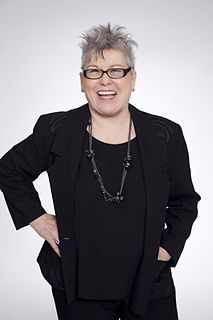A Quote by Susan Faludi
My feminist view - that gender is on a continuum and we are all better off dropping a lot of those binary notions - is one that is shared by the more recent generation of trans activists and theorists.
Related Quotes
Radical feminist theorists do not seek to make gender a bit more flexible, but to eliminate it. They are gender abolitionists, and understand gender to provide the framework and rationale for male dominance. In the radical feminist approach, masculinity is the behaviour of the male ruling class and femininity is the behaviour of the subordinate class of women. Thus gender can have no place in the egalitarian future that feminism aims to create.
One particular debate that I have seen play out again and again is whether trans people who have more traditional gender expressions or who "pass" more should be the ones who are represented. A recent advocacy guide focused on advocating around trans health care access produced by the largest trans advocacy organization in the US instructs readers that advocacy will be more successful if the message is delivered by people who pass as non-trans men and women.
I would say that it's very difficult to personally construct your gender. I think a lot of it is socially constructed. If you look at The New York Times' coverage of trans children, some of them were as young as four years old. One said, "I see my daddy in the woodshed, and that's where I'd rather be than in the kitchen." That to me doesn't ring as somebody who is trans, it rings as someone who has grown up with a narrow view.
My view is there will be problems and bad people as long as the earth exists, and since we're moving into a completely interdependent global environment, we're better off building a world we'd like to live in when the United States are not the only military superpower. That is, we need to build a world of shared responsibility, shared benefits, and shared commitment to our common humanity.
'RuPaul's Drag Race'... is very little about boys who dress up in girls' clothing: it's very much about grit, integrity, heart, power of perseverance, and the power of love. It's also opening a dialogue up about the persecution and the marginalization of trans people, of queer people, of gender non-binary and gender fluid people.
The potential significance of Black feminist thought goes far beyond demonstrating that African-American women can be theorists. Like Black feminist practice, which it reflects and which it seeks to foster, Black feminist thought can create a collective identity among African-American women about the dimensions of a Black women's standpoint. Through the process of rearticulating, Black feminist thought can offer African-American women a different view of ourselves and our worlds
Not all bodies are born in male or female. There is a continuum of bodies and it seems to me that trying to persuade medical and psychiatrist establishments to deal with the intersex involves critique of the binary gender system. Similarly there continues to be extreme, sometimes very extreme violence against transgender people.
Some trans people thought that in claiming that gender is performative that I was saying that it is all a fiction, and that a person's felt sense of gender was therefore "unreal." That was never my intention. I sought to expand our sense of what gender realities could be. But I think I needed to pay more attention to what people feel, how the primary experience of the body is registered, and the quite urgent and legitimate demand to have those aspects of sex recognized and supported.



































